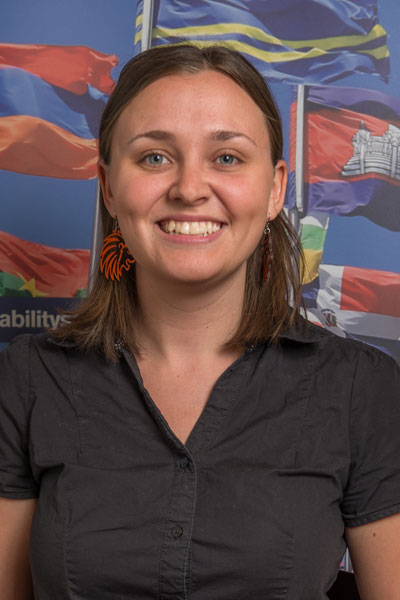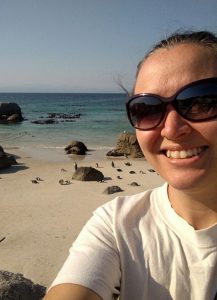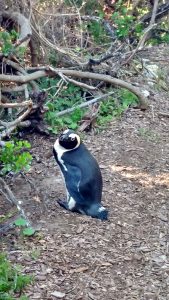
A Black Tie Affair: My Birthday with African Penguins
I’ve had some great birthdays. For my twentieth birthday, I visited the Mayan ruins of Tikal in the Guatemalan jungle. On my 21st birthday, I skipped the bar scene and instead indulged in whitewater rafting and In-N-Out burgers. For my 26th birthday, I descended into a lava tube in Flagstaff. But of all my birthdays so far the 28th was my favorite. On my 28th birthday, I saw wild penguins in South Africa!
Getting there was a bit of a challenge. After our squeaky-voiced concierge emphatically insisted that we absolutely should not take the metrorail – “I don’t even take the metrorail! It’s scary!” – we opted for an Uber instead. The trip took about an hour thanks to unanticipated road construction. After sitting at a standstill for about 10 minutes, our driver, without a word to any of us, just hopped out of the car and ran into a nearby coffee shop. Thankfully my worrying over what we should do if traffic started moving while he was gone was all for naught because he returned in a timely manner and got us all to Boulders Beach, home of South Africa’s most famous penguin colony.

Just to give you some background on these animals, African penguins are classified as “endangered” by the Ineternational Union for Conservation of Nature Red List because they are experiencing rapid population declines. The species is found in both South Africa and Namibia, and these populations together have decreased by approximately 61% in the past 28 years. There are a number of suspected reasons for this including: habitat destruction, irresponsible tourism activities and food shortages due to human overfishing and climate change. This means that the choices people make including what we eat, the transportation we use and how much we pollute might all be affecting these penguins, even if we live thousands of miles from Boulders Beach.

We saw our first penguin on the side of the boardwalk, crouched in the dirt just beneath a scrubby bush; a departure from the snow-and-ice image most people have of penguins. It was so close I could have reached out and touched it (but I didn’t of course, because I didn’t want to be one of those irresponsible tourists I just mentioned). As we continued down the boardwalk we saw dozens of more penguins, many of them with chicks, and nearly all of them taking cover under the vegetation. But the biggest treat was going to one of the breeding beaches where dozens of penguins and chicks snoozed on the beach, waddled towards the waves and zoomed about in the water. It’s always a lovely treat to get a glimpse into the lives of other animals, to see them going about their business and to think about how different it is from my own daily existence.
So why was this my favorite birthday? Was standing around watching penguins sleep really more exciting than hurtling down a raging river? Well for one thing, I am a huge penguin fanatic, so seeing wild penguins was as exciting for me as whitewater rafting. But more than that, I really enjoyed being in a place where I felt that humans were learning to appreciate another species, by watching them and talking about them and just existing with them in the same space. If we want people to act in more sustainable ways, we need to be fostering connections between people and the natural world. When the impacts of our choices become a physical reality that we can see and smell, and when that reality is preserved in our scrapbooks alongside memories of loved ones and once-in-a-lifetime trips, I think they become more meaningful to us. If we understand that our appetite for seafood is affecting these penguins – these ones waddling on the beach right here in front of us – perhaps we will start to more carefully consider the food we eat. Of course, developing empathy is not the same as actually acting on this empathy, but it’s a vital first step toward promoting sustainable behaviors that consider our individual impacts on an inescapably interconnected global system.

